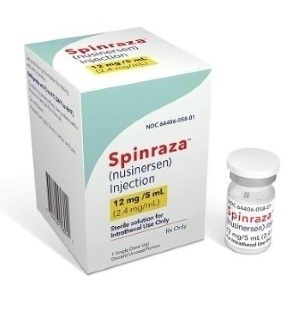Spinal muscular atrophy (SMA) patients taking Spinraza (nusinersen) are protesting against the Health Insurance Review and Assessment (HIRA), claiming its review of reimbursement standards is inconsistent.

A task force comprised of young SMA patients maintained Wednesday that an increasing number of patients experience difficulties as they fail to receive insurance benefits without clear reasons, although they don’t meet the criteria for discontinuing reimbursement announced by HIRA.
SMA is a degenerative disease that causes muscles to atrophy because nerve signals are not transmitted to the muscles. It had been known as a disease with no cure, but the emergence of Spinraza turned it into a “curable” disease. Spinraza began to receive insurance benefits in April 2019, according to the task force,.
Following Spinraza’s lead were Novartis’ Zolgensma (onasemnogene abeparvovec), a one-shot treatment, and Roche’s oral treatment Evrysdi (risdiplam). However, Zolgensma’s reimbursement is applied only to patients under nine months, and Evrysdi has yet to receive reimbursement.
Considering all these are very expensive drugs priced at more than a hundred million won that patients can hardly pay for them out of their pocket, Spriraza is the only treatment on which most SMA patients, except for some infants, can rely.
The problem is that an increasing number of patients taking Spinraza are discontinuing their treatment. According to HIRA’s open review case data, 34 of the 195 people, or about 34 percent, who had applied for Spinraza, failed to pass the review, becoming unable to use it as of February 2023,
For instance, a 20-something SMA patient who failed the review saw his Hammersmith Functional Motor Scale – Expanded (HFMSE) point, as suggested by HIRA, rose to 2 points from 0 before taking the drug, demonstrating maintenance or improvement of motor function, but was notified of disapproval.
The outcome of the open review case involving the patient said, "In the opinion of the expert, the submitted HFMSE results do not demonstrate maintenance or improvement of motor function due to the administration of Spinraza injection,”
In response, the task force said that the patient and many others whose treatment was interrupted complained, saying, "Interrupting the treatment because they felt the disease progressing again or it took time to see effects is like taking away a heavenly gift from patients who have struggled to survive.”
Pointing out that SMA is a progressive disease that can lead to death if patients stop treatment, the task force said that just stopping the progression of the disease and improving quality of life is effective, adding that the fact that they are still functioning is a testament to the effectiveness of the treatment.
The task force criticized the current reimbursement review standard for Spinraza uses only two yardsticks -- HINE-2 and HFMSE that only assess large muscle movement -- and called for measures to assess small muscle movement and quality of life.
In particular, it emphasized that for adult patients, by the time a treatment is developed, the disease has progressed, and the joints have become stiff and dysfunctional. Hence, the evaluation criteria are not appropriate and should be relaxed.
In response, HIRA said, “We cannot guide the content of the deliberations to individuals rather than institutions, and all content is a matter determined by the deliberation committee based on experts’ opinions.”
April, the task force’s head held a news conference to call for improving standards for discontinuing Spinraza’s reimbursement along with the Solidarity Against Disability Discrimination (SADD) in front of the presidential office in Yongsan, Seoul.
“With the initial benefit rollout, not all patients with SMA were covered, but they were still treatable,” said Cheong Hye-yeon, the task force head. “But even eligible patients are being denied benefits now under the pretext of their treatment being ineffective at maintaining the status quo.”
Related articles
- SMA patients call for improving reimbursement standards for Spinraza
- [Special] Global blockbusters’ failure to win insurance coverage raises questions about fairness
- Will reimbursement criteria of SMA treatment Spinraza change?
- How to use unapproved, expensive new drugs?
- Novartis Korea offers genetic testing for inherited retinal diseases
- ‘Early diagnosis by orthopedic surgeon critical to curb musculoskeletal diseases’
- Oral SMA drug Evrysdi passes reimbursement review
- Spinraza’s reimbursement depends on proving continuous motor function
- Negotiations to expand coverage of Spinraza and Evrysdi end dramatically
- Expanded reimbursement for Spinraza improves patient access: Biogen Korea

